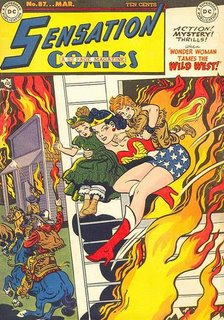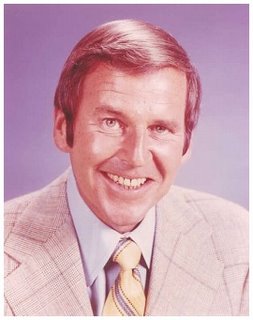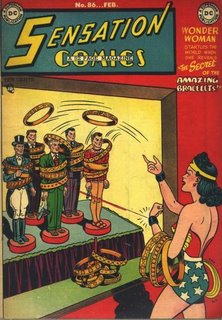 Because I am only in Massachusetts for the year, I stay a voter in Texas. It took me some time and a couple of phone calls to figure that out, too. Or maybe I just would have preferred to be a Massachusetts voter. In the end, though, I am still technically a resident of Texas. Yuck! After filling out what seemed like an unusually complicated set of web and paper forms, Texas finally allowed me to send off my absentee ballot this morning.
Because I am only in Massachusetts for the year, I stay a voter in Texas. It took me some time and a couple of phone calls to figure that out, too. Or maybe I just would have preferred to be a Massachusetts voter. In the end, though, I am still technically a resident of Texas. Yuck! After filling out what seemed like an unusually complicated set of web and paper forms, Texas finally allowed me to send off my absentee ballot this morning. I am astounded by the number of people around me who have declared that they are “sitting out this election.” How do you sit out an election? Did your voting finger get tendinitis? Are you drunk with giddiness because you voted for the winning contestant from American Idol? After that, other elections, like for the leadership of the nation, just seem too shallow?
Of course, the media doesn’t help matters. Over the past week I have seen too many news stories that told Americans that voting would be useless. Either they said the two political parties are interchangeable, the elections were already decided by polling, or that voting machines would simply discard their votes anyway.
CNN came up with one of the more bizarre voting conspiracies that I have seen to date. They showed that a Venezuela corporation manufactured a few voting machines. Of course, the next logical jump is to assume that Hugo Chávez will be deciding the composition of the U.S. Senate. Yeah, that's how the historical relationship between the U.S. and Latin America has worked. The U.S. is just a puppet of leftist Latin American dictators.
Trust me, I can understand how people get turned off of voting. Voting in Texas elections depresses me. For over a century and a half, Texas has worked to keep people like me from expressing my voice in elections. Today, voting Left in Texas is a lot like running around the Hindenburg with a seltzer bottle. No matter how hard you try to put out the fire, the Nazis still controlled both burning piles of wreckage. Oh, the humanity!

Disappointment can be found even deeper. The Democratic Party has become so useless that many of the local Texas elections don’t even have a Democratic candidate. I mean, they couldn’t find anybody who wanted to run as a Democrat for the state legislature from my district? Anybody? Somebody's Aunt Sally? Anybody?
The Democrats should be fielding candidates in every single election. Maybe the party does think it's an uphill battle. I don’t care. On principle, they should put out a candidate. It doesn’t matter to me if the Democratic candidate is a twenty-six year-old-stripper. Heck, there are many reasons why I would trust a twenty-six-year-old stripper over 95 percent of Republicans, and 99 percent of Texas Republicans.
Since I have arrived in Boston, here is the question I get asked most often: “Is Texas really as scary and hateful as it seems?” The question presumes the answer. What can I say? “No, man, Texas is just fine. When Governor Rick Perry told all gay people to leave the state, it was just his way of encouraging tourism for the other forty-nine states. He wants to spread our queer Texas dollars around a bit. Why be greedy?”
To be honest, I also don’t really care about the future of Texas. I hope not to return, if I can help it. In the last major Texas election, 76 percent of Texan voters favored a constitutional ban on gay marriage. Though good people live in Texas, for the most part, Texan voters are riddled with hate and malice for people like me.
I think we should treat Texas like an Etch-a-Sketch©. Let’s put the whole state over our head and shake it until it’s clear again. Start over from scratch, is what I say. Either that or we need to start learning from the deceptive practices of the Christian Evangelicals to fight back a bit.

Some states have warped the notion of “informed consent” for women trying to obtain her legal right to an abortion. In these instances, women have to sit through a lecture about the alleged consequences of having an abortion. Often times, these present unconfirmed or disputed information about abortions as “facts.” We can flip the tables and start applying “informed consent” laws when people register to vote.
A voter who registers as a Republican would immediately be referred to a voting “counselor.” The voting counselor would ask some basic questions:
Counselor:
I see you marked “Republican.” Is your annual income over $200,000 per year?
Are you white?
Are you male?
Are you hetero?
If the answer to all these questions is "yes" and you are white, straight, and male, off you go. Good luck.
If not, the Counselor responds with a predetermined set of warnings:
“I am obligated by law to inform you that voting Republican will adversely affect your standard of living. Under Republican administrations, real wages have either stayed static or actually decreased while inflation has risen.After they hear all of that and sign a release, they can register as a Republican. I am tired of poor folk voting against their own economic interest just because they hate gays, or people of Islamic faith, or because they think George Bush watches NASCAR.
Those who want a small federal government should know that Republican administrations since Ronald Reagan have actually increased the scope and size of the U.S. federal government by many fold.
Voting Republican will decrease your child’s chances for an adequate education.
Voting Republican might mean the end of certain civil and/or human rights in the U.S.
Women who are pregnant, or thinking of getting pregnant, should not vote Republican.
Voting Republican has been linked to signs of depression and, in extreme cases, psychopathic behavior.
Republicans want to eliminate people who desire same-sex sex. If you currently, or have in the past, had sex with somebody of your same sex, you should not vote Republican.
Side effects of voting Republican can include poverty, anxiety or nervousness, abnormal sweating (particularly if your last name is Nixon), change in appetite, constipation, diarrhea, headache, nausea, sedation, seizure, skin rash, homlessness, stomach cramps, trouble sleeping, and dry mouth.
Voting Republican does not protect against STD’s. In some cases, it might increase your chances of contracting a STD by reducing your access to condoms.
Voting Republican is habit forming. You can become physically and psychologically dependent on the party and lose the ability for independent thought.
If you experience any of the above serious side effects, stop voting Republican immediately and seek emergency medical attention or contact your doctor immediately.
So, yeah, I know that voting can seem like a losing battle sometimes. All the same, I ain’t giving up what I think of as my basic right and obligation. Too many people fought and died for my right to punch a hole, mark an x, blow out a candle, or whatever to register my voice in the government. Even if my ballot ends up in the shredder, at least somebody will know my disapproval of the status quo.














































